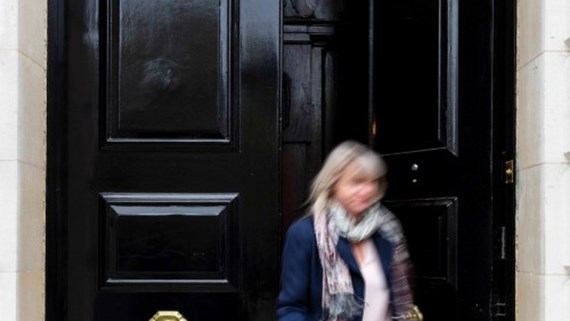Common Reporting Standard – what it is, how it affects charities and changes to HMRC's guidance
Insight

Last October Julian Smith wrote about the impact of the Common Reporting Standard (CRS) on charities. Updated guidance, issued in January, has now brought greater comfort on an area of lingering concern – that of the human rights implications of the reporting requirements for some charities.
Background
What is CRS?
CRS was initiated by the Organisation for Economic Co-operation and Development (OECD) group of countries, with the intention to tackle tax evasion through an internationally-agreed regime for the automatic exchange of information. It does this by requiring "financial institutions" in committed jurisdictions (of which there are 101 as of 15 February 2017, including the UK) to pass on information about clients to the appropriate national tax authority – HMRC here in the UK. It has its origins in the US Foreign Account Tax Compliance Act (FATCA).
Which charities are caught?
While CRS is primarily aimed at banks and other institutions providing financial management services, the definition of "financial institutions" is wide.
A charity can be regarded as an "investment entity" (a type of financial institution) if it is "managed by a financial institution" and its gross income is "primarily attributable" to investing, reinvesting, or trading in "financial assets". In general:
a charity is regarded as being "managed by a financial institution" where it has appointed a financial institution (for example, a professional investment manager) to manage all or part of its assets on a discretionary basis; and
a charity’s income is "primarily attributable" to investing, reinvesting, or trading in "financial assets" (which do not include directly-owned real estate) where this activity accounts for at least 50% of the charity's gross income.
Unlike FATCA, which (as implemented in the UK) contained an exemption meaning that UK charities do not have reporting requirements, CRS does not contain a charity exemption.
This means that all charities that fall within the definition of "financial institution" (including many endowed and grant-making charities) need to consider whether they are required to make reports.
What are the reporting requirements?
The requirements for financial institutions are to:
gather certain information on "reportable account holders" (which, in the case of grant-making charities, can include those in receipt of grant funding – see further below), including the account holder's name, address, tax residence, tax identification number and, for individuals, date of birth; and
depending on the tax residence of those "account holders", provide that information to HMRC on an annual basis before the reporting deadline of 31 May in each year.
Guidance and sector response
CRS came into force on 1 January 2016 but HMRC was slow to identify the impact of compliance on the charity sector. Charities were not mentioned in the draft guidance published in September 2015.
In March 2016 HMRC finally approached sector umbrella bodies (including the Association of Charitable Foundations (ACF), Charity Finance Group (CFG) and Association of Charitable Organisations (ACO), among others) to discuss the impact of CRS.
It emerged during those discussions that the decision not to make charities exempt had been made an OECD level. CRS has, however, been interpreted differently in different jurisdictions – even across EU member states, where it is governed by the same directive (the tax authorities in Luxembourg, for example, consider charities to be exempt from CRS, while HMRC's approach is more cautious).
HMRC subsequently published charity-specific guidance in June 2016. This was expanded and improved in August 2016 when HMRC provided some welcome clarity. In particular:
a financial institution that is constituted as a charitable company will not have to treat those to which it pays charitable grants as account holders;
by contrast, a financial institution that is constituted as a charitable trust will have to carry out due diligence on grantees and (depending on their tax residence) may need to report on them to HMRC;
all charities that are financial institutions will have to report on those that have a "debt interest" in the charity (including providers of loans); and
where a financial institution has account holders that are charities registered with the Charity Commission or OSCR, it can rely on the recipient charity's publicly-available information and does not need to carry out further due diligence.
Human rights concerns
There remained, however, a residual concern that the reporting requirements under CRS could conflict with the human rights of individuals or a class of individuals.
For example, a charity might provide grant funding to civil society groups or individuals working with LGBT or women's rights, in countries where the beneficiary communities can be subjected to state-sanctioned persecution. As the ACF, CFG and ACO noted when highlighting this issue to Rob Wilson, the Minister for Civil Society, HMRC could, in effect, be handing the names and addresses of local activists directly to the civil authorities.
Revised guidance
In January 2017 HMRC updated its guidance for charities on the CRS. The most significant update was the introduction of a new chapter on human rights. This acknowledged that the information reported under CRS has the potential to impact on the recipients of grants from charities and that, in some cases, the activities or background of the individual may mean that supplying this data to the other jurisdiction will place them at risk.
The guidance states that, if a charity is concerned about the human rights implications of information it is required to report, it should contact HMRC to discuss those concerns. Importantly, HMRC recognises that there may be cases where the threat to individuals may warrant information being redacted. It also suggests that charities should be proactive in raising concerns with HMRC.
The updated guidance has been welcomed by sector bodies, particularly those that worked hard to highlight these concerns in the first place, although it remains to be seen how HMRC will respond in practice to a request to redact personal data.
Approach to compliance
HMRC has promised a "soft landing" for charities and has suggested that, while there are penalties for late or incomplete reporting, it will hesitate to impose these where a charity has made every effort to comply but has made errors in doing so.
Nevertheless, CRS remains a significant burden for some charities, particularly charitable trusts that fall within the definition of financial institution, where they have many reportable account holders. There remains a sense of frustration that HMRC did not engage with the charity sector at an earlier stage.
If you require further information on anything covered in this briefing please contact James Maloney([email protected]) or your usual contact at the firm on 020 3375 7000.
This publication is a general summary of the law. It should not replace legal advice tailored to your specific circumstances.
© Farrer & Co LLP, May 2017







